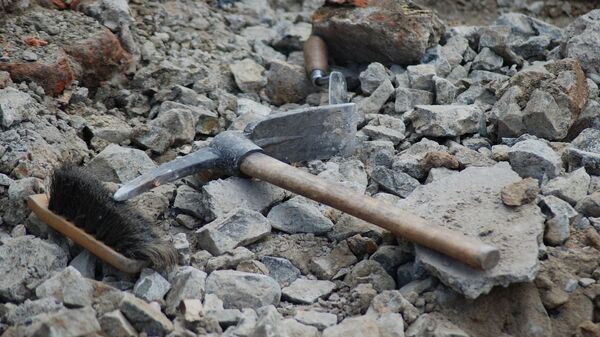In 2009, archaeologists unearthed a Canaanite palace at the Tel Kabri archaeological site. Researchers said that the beautiful building most likely served as a political center for Canaanites in the region. Larger than a modern shopping mall, it was full of wall paintings, had a banquet hall and its storage rooms contained over a hundred jars of spiced wine. However, in the 18th century BC, shortly after it was renovated, the palace was abandoned and for years archaeologists sought answers to what was until now, a mystery
A group of international researchers from the United States and Israel claims that it has found the answer to the mystery. According to the findings of the study, published on 11 September in the journal PLOS One, archaeologists examined the site to find whether a natural disaster such as a flood or a drought led to the abandonment of the palace. Researchers also searched for signs of weapons, fire or unburied bodies to learn whether battles or violence occurred at the site.
Canaanite palace was abandoned 3,700 years ago. Archaeologists finally know why.
— Ticia Verveer (@ticiaverveer) September 12, 2020
Researchers in Israel dug for years for evidence—and what they found may have implications for modern residents of the region.
By @kristinromey https://t.co/UVTyWA2SKi pic.twitter.com/cNygAbRSp5
Over the course of the excavation, researchers noticed features inside the palace that appeared to them bizarre – some walls were offset, several floors were sloped at unusual angles, said to be a little "wavy" and looked as if they had been hit by heavy objects falling from a great height.
Archaeologists analyzed fine grains of sediment that covered the palace floor and found that they contained plaster and material used to build walls. The team concluded that this could only have been caused by an earthquake. They further analyzed sediment records from the Dead Sea and discovered that a tremor occurred in the region around 1700 BC, the time the palace was abandoned.
"This is archaeology. You know, pieces come together. You discard hypotheses, you get more plausible hypotheses, and then eventually you have to invoke Sherlock Holmes, right? You eliminate the impossible and work with whatever’s left", said Eric Cline of the George Washington University, a Tel Kabri co-director.

